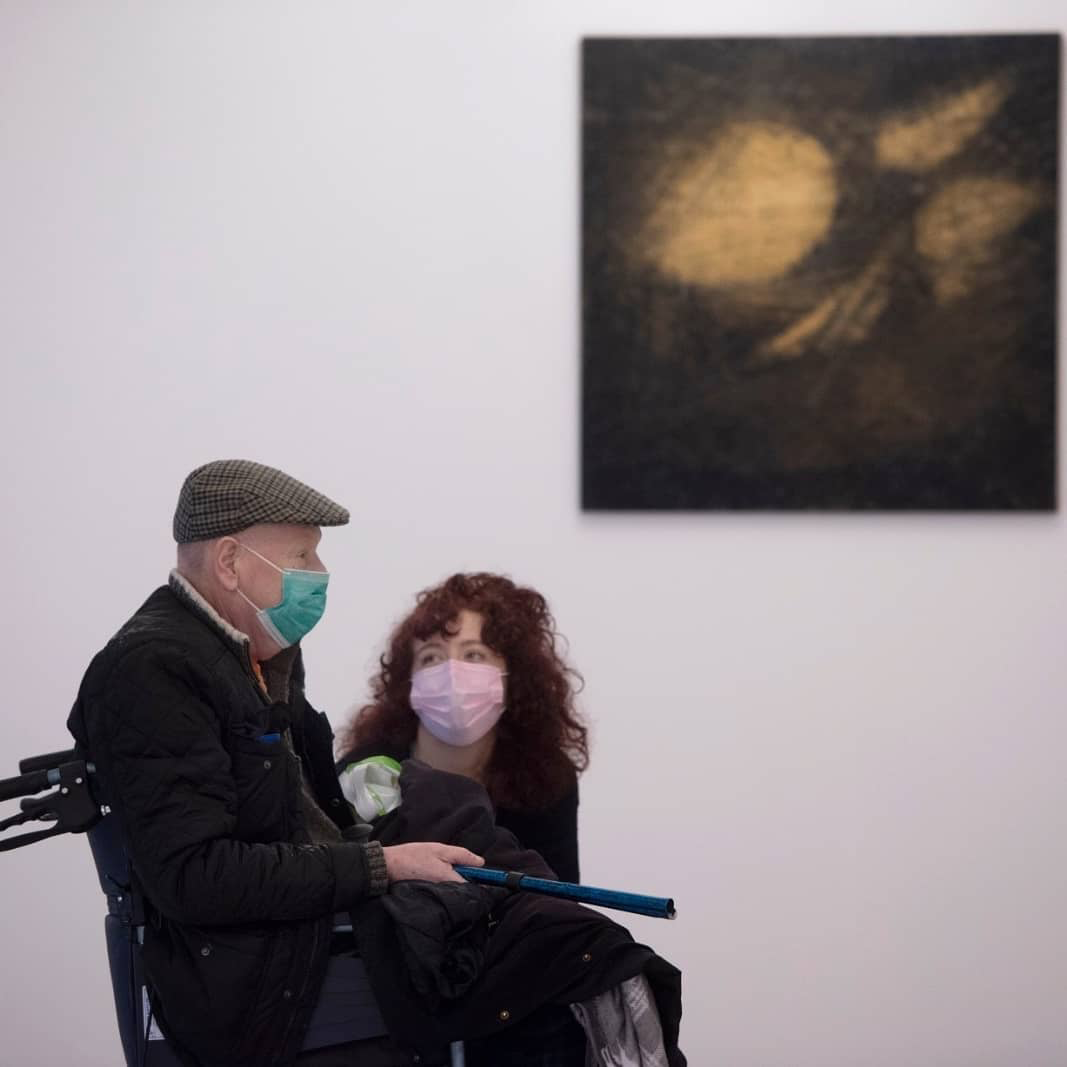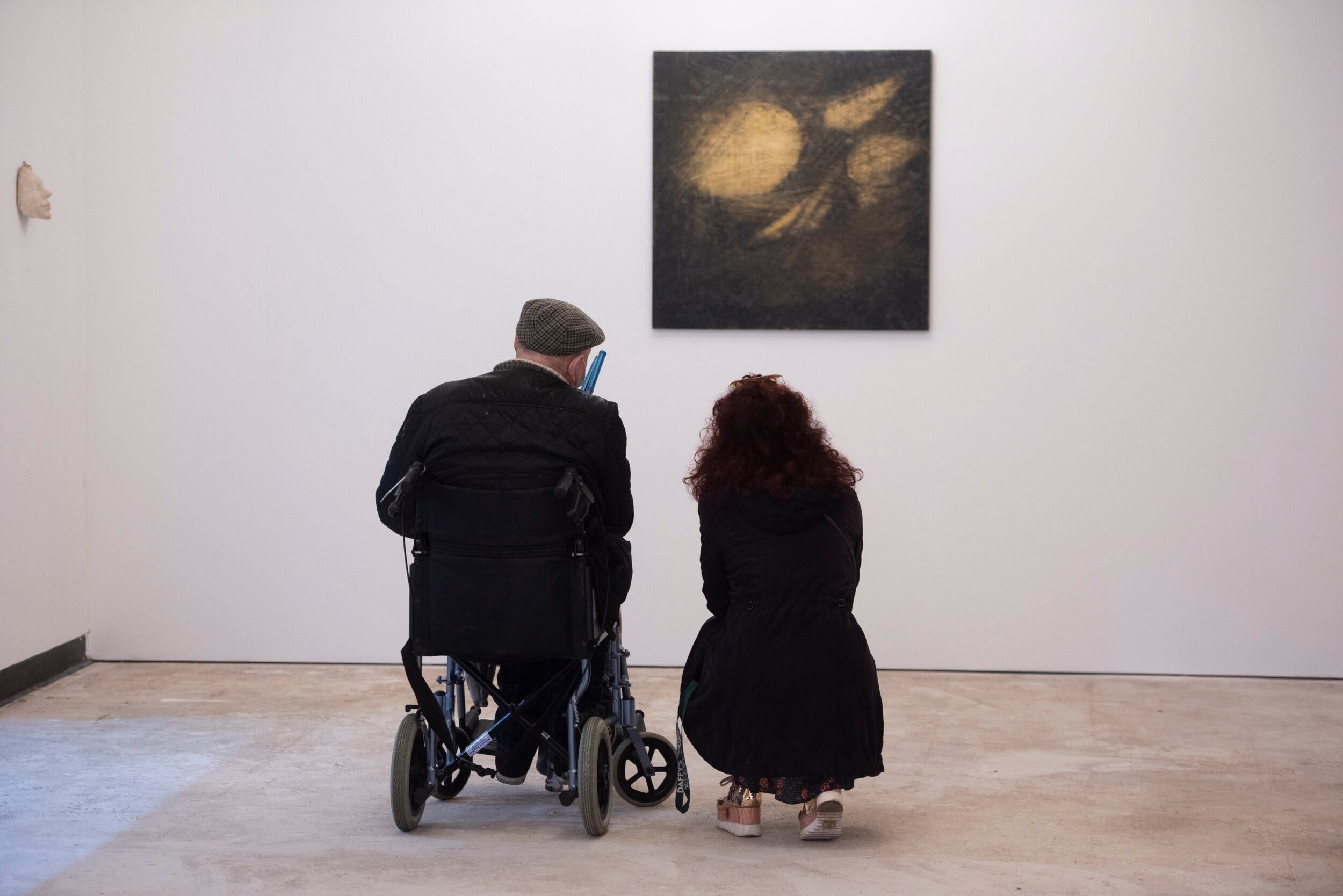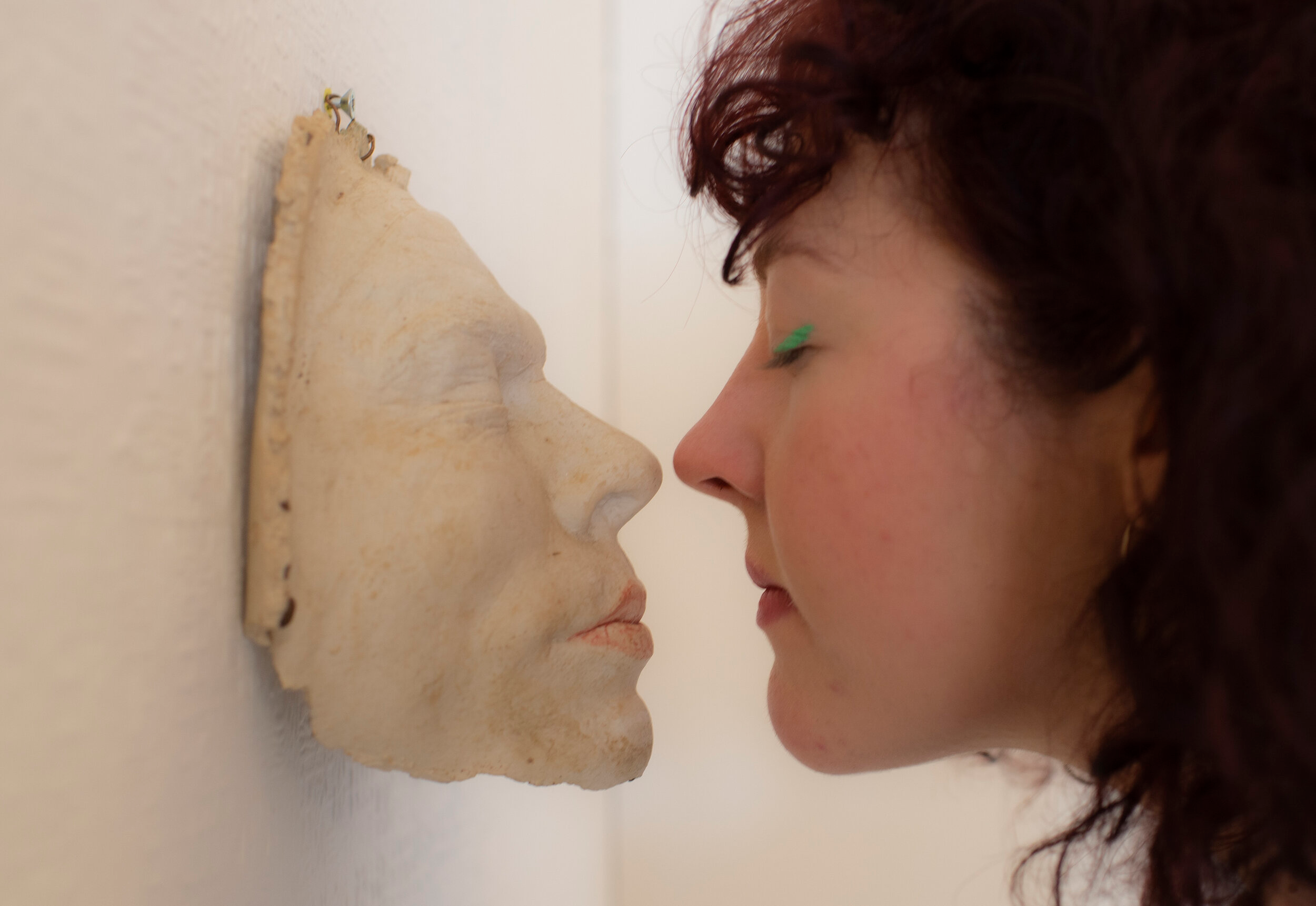I tried smoking at 12, and was addicted by 13. I had moved around a lot after the age of 10, having been taken away from my mum who was struggling with her mental health, a heroin addiction and an abusive relationship with a man who was not my dad. I eventually ended up living with my Dad, who was a smoker, and I think I just wanted a way to fit in at school.
My addiction to smoking was making me very unhappy, because I felt so powerless. As an adult I was smoking around 20 a day, and they accompanied everything - from food, to coffee, computer work, painting, socialising, stress and relaxation.
I was very concerned about my health, and this lived with me as a great fear which was negatively affecting my mental health. My parents both died from their addictions in different ways. My mum ended up taking an overdose of heroin to take her own life in 2015 and my Dad died of lung cancer in 2021.
I wanted to reclaim some power in my life, I wanted to give myself that gift of self-empowerment.
I searched for the service online and contacted them. Vape, gum and patches helped. Now I feel like I've taken back some power and control. My skin has improved and my breathing too. I have more energy.
I used the money saved from smoking to buy health products and services that supported my physical and emotional process of stopping,
This included Aloe Vera juice to help with constipation during withdrawals and different herbal teas to aid digestion. I also paid for some acupuncture to help with cravings and stress, and 4 therapy sessions to support the emotional aspects, namely my fear of stopping. The therapy was in the form of 3 CBT sessions and at the end, a hypnosis. I can see clearly that my fear, that I'd never be happy, calm or comfortable again, was actually not true.
We asked Amy: ‘what coping strategies have you learned that you found most useful?’
During the stop smoking program, I learned many mindfulness techniques that were really helpful. These included simple things like noticing my surroundings, savouring the taste of food, or taking a conscious breath. There were also CBT techniques, like remembering phrases that helped me during cravings, such as reminding myself of the reasons I wanted to be healthier and empower myself.
I also chewed a lot of carrot and celery sticks, along with nicotine gum, to help manage cravings.
One of the key focuses of the program was looking at how we feel about our lives overall — asking ourselves if we’re headed in a direction that truly serves our health and happiness.
Although the transition from smoking to being smoke-free came with some discomfort and emotional challenges, it also created space for me to be more open to trying new things. I experimented with different techniques and thoughts, which helped me tune in more deeply with how I feel now and where I want to go in my life.
Amy’s experience with our group sessions...
I wanted to stop smoking and knew I needed to be in a group for this. I had actually been looking for a stop smoking group in Newcastle or a surrounding area for 3 years and this was the first one I found!
The group sessions the service offer for me were integral to my cessation process, without them I'm not sure if I would have succeeded. They provided me with such compassion and support, on good days and bad. I also really enjoyed and learned a lot from a new education in rehabilitation; learning that stopping smoking was so much more than it seemed on the surface.
It became an opportunity for me to re-evaluate all different aspects of my life and habits, looking at what was supporting my health and happiness and what wasn’t.
I did have to confront some difficult feelings, and I think it was these feelings that were holding me back from trying to stop. Mainly for me, fear was my biggest challenge. Fear that I'd never be happy again, or relaxed, or enjoy myself. I have CPTSD and autism so I really felt that my sensitive nervous system needed smoking. The group uses a CBT approach to the cessation process, and I think this is essential.
I had a support group that also understood that stopping smoking has a huge emotional dimension, not just physical. We discussed so many different things about self-love and care, mindfulness, physical health, community and creating support networks, and also there was a focus on asking myself what I really want to be doing in my life - ‘what will bring me peace and happiness?’
The thing I appreciated the most about the group was that the staff had a brilliant awareness that smoking is just like any other addiction and addicts should be provided with that level of support.
It honestly feels like a miracle that I have managed to stop smoking! I smoked from 12 to 32 so it really didn’t feel possible for me, but here I am very happily proven wrong!
I always left the group meetings feeling very supported and very inspired.
We asked Amy: ‘having been through your own experience, what would you say to anyone thinking of starting their smokefree journey?’
I would say, acknowledge the fear and doubt, allow it to be there, it might control you now, but you’ll be surprised how you can rise out of the fear, and you’ll be so much stronger and very pleased with yourself. It is a very empowering experience.
I would 100% recommend the service! This service is so much more effective than any stop smoking support I have encountered or seen available before.
Now that I have proven to myself that change is possible, I have vowed to myself not to go back. I remember how miserable it was making me. Even if I have a lapse, I won't continue to smoke.
Amy’s art

Since the death of my dad in 2021, I have been working with art to create a personal rehabilitation program to support myself through grief. I needed a focus that was healthy, therapeutic, and productive - something that could nurture my vulnerable experiences while also challenging me to build emotional and psychological resilience.
Through this process, I have not only found healing but have also drastically improved my mental and physical health. Stopping smoking is a powerful testament to the resilience I’ve been cultivating. What once felt impossible, to stop smoking after nearly two decades, has become a lived reality, and it has reinforced my belief in the potential for deep personal change.

The education and support provided in the group sessions have been deeply inspiring and very relevant to the creative rehabilitation work I am developing. The approach we explored together - seeing rehabilitation as a holistic process, not just about stopping a behaviour but about re-shaping a life, has given me even more motivation and clarity. I now have a stronger vision of helping others rise through mental health difficulties, trauma, addiction, and loss through creative, supportive frameworks.
“I am deeply grateful for the inspiration, compassion, and education I received through this service. It has helped me see my future as something I can actively create, not just survive.”

